Belarus
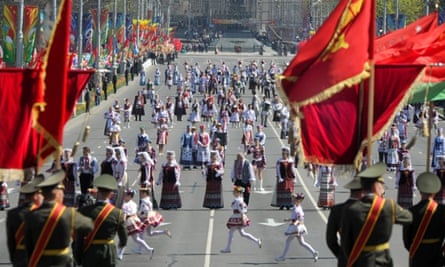
Ruled by Alexander Lukashenko for the past 20 years, Belarus is widely regarded as Europe’s last dictatorship. Lukashenko won a free and fair presidential election in 1994 after campaigning as a political outsider with an anti-corruption agenda, but once in charge he steadily consolidated his authority, changing the constitution to extend his term in power.
Lukashenko is widely considered to have rigged subsequent elections and is known for jailing and harassing opponents and muzzling the press. His authoritarian policies have caused friction with the EU and US, resulting in economic sanctions and travel bans for top officials. He has close ties with Russia, and the countries have signed a series of agreements to allow greater cooperation, although there have been periodic hiccups, including several Moscow-imposed cuts in natural gas supplies because of unpaid debts.
Belarus is a charter member of a Russia-led customs union, which the Kremlin hopes to develop into an alternative EU for former Soviet states. The watchdog group Freedom House rates Belarus as “not free”, and gives the country the worst grade possible when it comes to political rights.
Ukraine
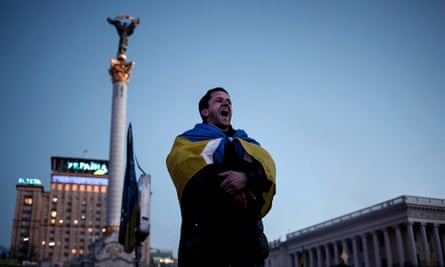
For some, the protests that erupted in November 2013 may have come as a surprise. For many others, it was only ever a matter of time before tensions boiled over in a country that spent the post-Soviet era zigzagging between east and west.
In 1994, Ukraine became the first formerly Soviet republic to experience a peaceful transfer of power via the ballot box, when Leonid Kuchma won a presidential election, replacing Leonid Kravchuk. A new constitution was adopted in 1996, but the government struggled to implement reforms and the economy stagnated. Despite rising dissatisfaction with his leadership, Kuchma was re-elected in 1999, but a protest movement calling for his resignation gained momentum in the early 2000s. A presidential election in 2004 initially showed the pro-Russia candidate, Viktor Yanukovych, a former governor of Donetsk region, to be the winner. However, evidence of widespread fraud prompted mass protests in Kiev which came to be known as the Orange revolution and brought about a new election.Victory for Viktor Yushchenko, a political opponent of Kuchma and former prime minister, raised many people’s hopes that Ukraine would move towards the west, liberalising its political and economic systems, but his reformist coalition lacked cohesion and failed to implement significant reforms. A party led by Yanukovych won parliamentary elections in 2006, and after prolonged manoeuvring he was named prime minister.
Political and economic uncertainty persisted. In 2009, Russia cut off gas supplies to Ukraine amid a dispute over Kiev’s debt payments, with the dispute interrupting gas deliveries to many EU states. In 2010, Yanukovych was elected president and steered Ukraine back towards closer relations with Russia. He quickly pushed through constitutional changes that enhanced presidential authority, and took action to curb dissent. In 2011, Yulia Tymoshenko, a Yanukovych foe and a former prime minister, was jailed.
In late 2013, Yanukovych backed away from signing an association agreement with the EU, prompting large-scale protests, which came together in the Euromaidan movement. In February 2014, Yanukovych fled the capital, Kiev, and was subsequently impeached by parliament. A pro-western coalition took power. In late February, Russian troops, in unmarked uniforms, moved into the Crimean peninsula to support local separatists and in March, Russia annexed Crimea. Widespread instability hit eastern regions of Ukraine, as separatist elements, with suspected backing from Russia, took control of several cities and towns. In late May, the pro-western billionaire Petro Poroshenko won a decisive victory in the presidential election, vowing to restore law and order to the east.
Georgia
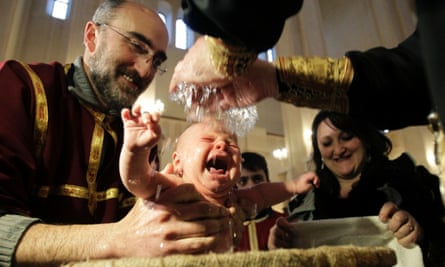
Georgia has had a turbulent post-Soviet experience, to put it mildly, beset by separatist conflicts in two territories, Abkhazia and South Ossetia, and riven by a civil war that left the centre of the capital, Tbilisi, in ruins. Pervasive corruption and mismanagement fostered political and economic instability until 2003, when a former justice minister, Mikheil Saakashvili, led an uprising known as the Rose revolution. Elected president in 2004, he pushed Georgia towards the west, setting membership in the EU and Nato as top foreign policy goals. On the domestic front, the new leadership curbed corruption but economic growth continued to lag. Meanwhile, Georgia’s relations with Russia took a nosedive. In 2006, Russia jolted Georgia’s economy by banning imports of Georgian wine and mineral water. Bilateral tension remained high until summer 2008, when the two countries fought a five-day war over the territory of South Ossetia, which ended with Russian troops occupying parts of Georgia proper.
In domestic politics, the use of force by police to break up a mass protest in late 2007 prompted suggestions that Saakashvili was not respecting basic democratic rights and criticism of his governing style grew. In parliamentary elections in 2012 his supporters lost their majority to a reformist coalition backed by billionaire entrepreneur Bidzina Ivanishvili. In 2013, term limits sent Saakashvili into retirement, and Giorgi Margvelashvili became president. Constitutional amendments introduced in 2013 weakened presidential authority in favour of enhanced powers for parliament. Unlike Ukraine, Georgia completed negotiations on its initial EU association agreement in 2013, placing the country on a firmer path towards full membership.
Azerbaijan
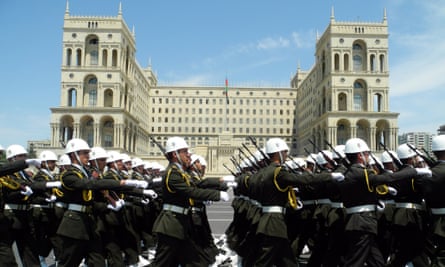
Oil and natural gas exports have helped make Azerbaijan the most prosperous state in the Caucasus region but it is also the most corrupt, according to Transparency International.
The post-Soviet era started disastrously with defeat in a war against neighbouring Armenia over the Nagorno-Karabakh enclave. A 1994 ceasefire agreement left Armenian forces in control of not only Karabakh but also about an eighth of Azerbaijan proper. Political chaos in Baku in 1993 enabled the political comeback of Heydar Aliyev, who led Azerbaijan’s Communist party during the Soviet era. Once back in power Aliyev quickly sidelined political foes and consolidated his authority.
Azerbaijan’s fortunes improved with the signing of an energy development deal in 1994 with a consortium of major oil companies, led by BP. A pipeline to transport Azerbaijani energy from the Caspian basin to the west via Turkey began operating in 2006, generating billions in revenue annually for the government. In August 2003, a seriously ill Aliyev engineered a dynastic succession, appointing his son, Ilham, as prime minister. Three months later, Ilham Aliyev won a presidential election and has since developed strong strategic relations with the US and EU, while keeping Russia at arm’s length. Azerbaijan’s top diplomatic priority is the recovery of Karabakh and other territories, but political talks with Armenia are at stalemate.
Azerbaijan used its hosting of the Eurovision in 2012 as an opportunity to show off its oil wealth, splashing out an estimated $76m (£45m) on the event. But the contest also shone a spotlight on Aliyev’s crackdown on basic freedoms, the muzzling of the press and limits on political dissent.
Lithuania
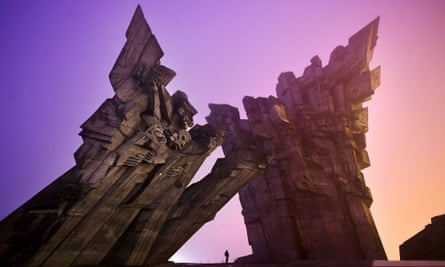
A drive for independence in the late 1980s and early 1990s played a pivotal role in the demise of the Soviet Union. A botched Red Army crackdown on protesters in Vilnius in January 1991 precipitated the failed coup against Mikhail Gorbachev in August that year. The unsuccessful coup, in turn, triggered the collapse of the Soviet empire. After gaining independence, Lithuania looked westward, joining the EU and Nato in 2004.
Lithuania enjoys free and fair elections. Renowned for her Thatcheresque resolve, the country’s “Iron Lady”, Dalia Grybauskaitė, became the country’s first female president in 2009. Under her watch, Lithuania rebounded from a severe depression brought on by the 2008 financial crisis and is now striving to meet eurozone entry criteria by 2015.
While diplomatic relations with Russia are still marked by rancour (Grybauskaitė recently vowed to “take a gun myself to defend the country” against Russian aggression “if that’s what’s needed”), Lithuania has by far the highest trade volume with Moscow of the three Baltic states.
Latvia
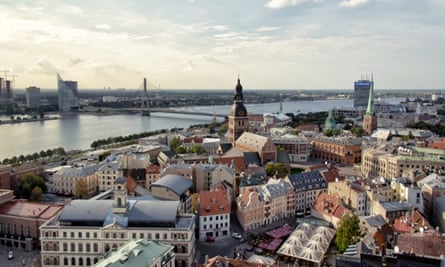
After the collapse of the USSR, Latvia underwent a dramatic transformation by rapidly turning west, joining the EU and Nato in 2004 and the eurozone in 2014.
As with its Baltic neighbours, Latvia has had a contentious relationship with Russia, and the rights of Latvia’s ethnic Russian inhabitants (who make up about a quarter of its 2.1m population) remain a thorny issue. Many Latvians believe the influx of migrants from the USSR during decades of Soviet control was part of a concerted effort to destroy Latvian nationalism and Baltic culture, and recent government policies promoting the use of Latvian over Russian have been a source of tension.
Latvia was the EU member hardest hit by the 2008 financial crisis, with unemployment topping 20% at one point. Years of austerity saw the country achieve one of the EU’s most successful financial bounce-backs, yet unemployment remains stubbornly high, spurring many young Latvians to move abroad. A 2011 survey found the population had shrunk by more than 13% in little over a decade, leading to fears of a brain drain.
In recent years, Latvia has reinvented itself as a financial services hub, facilitating capital flight from Russia and other former Soviet republics. Some Latvian banks have faced international criticism for allegedly engaging in money laundering.
After fighting hard for farmers’ rights in EU negotiations, mathematician and former agriculture minister Laimdota Straujuma became the first female prime minister in January 2014. Parliamentary elections are scheduled for October 2014.
Estonia
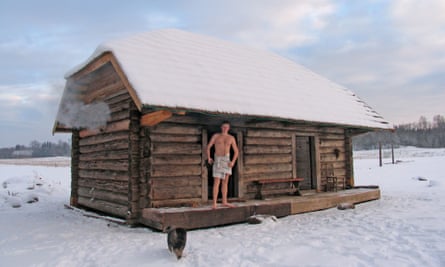
Estonia is the smallest, least corrupt and most prosperous of all the former Soviet republics. The Baltic state rushed to embrace a market system after the 1991 Soviet collapse, and its economy is now powered by vibrant telecoms and electronics industries. The 2008 global financial crisis hit the country hard, sending unemployment spiralling. But stringent austerity measures quickly got the economy back on track. Estonia joined the EU and Nato in 2004, and, thanks to the quick recovery, entered the eurozone in 2011.
A country with a strong cultural connection to Finland, Estonia’s relations with Russia are fraught with tension. The bulk of ethnic Russians, who comprise roughly 25% of the population, are concentrated in eastern regions near the border with Russia. Tensions boiled over in 2007 when local Russians rioted over a government decision to relocate a second world war memorial in central Tallinn, the capital. The clash left one dead and dozens injured. But a shrinking populace is perhaps a greater challenge than any problems with Russia. The current population of 1.2m is declining at an alarming rate. Young Estonians are also taking advantage of EU membership to emigrate in droves.
Moldova
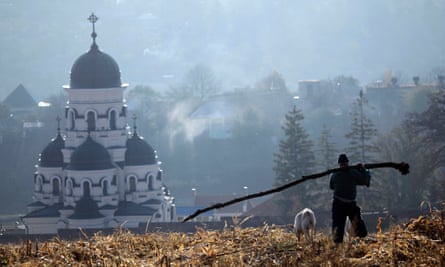
Moldova became a Soviet republic in 1940 after Moscow annexed the Black Sea territory of Bessarabia. In 1992, shortly after the Soviet Union’s collapse, Slavic separatists waged a brief and successful fight against Moldovan government forces, resulting in the creation of the Transnistrian Republic – a narrow strip of land lying between the Dniestr river and the Ukrainian border. Russian intervention was a crucial factor in securing the separatists’ victory.
For 22 years, the sides have been unable to agree on a political settlement to the conflict. In late 2013, Moldovan authorities entered an agreement with the EU, placing the country on a path towards full membership. Russia is opposed to Moldova’s EU aspirations, and may try to use the Transnistrian conflict to disrupt integration plans.
The country is wedged between Romania and Ukraine, not far from the Black Sea. Moldovans comprise about 85% of the overall population today, and have close linguistic and cultural ties with their Romanian neighbours.
According to IMF data, Moldova is among Europe’s poorest countries. There were repeated bouts of internal political and economic turmoil during the late 1990s and early 2000s, though the situation has stabilised in recent years.
Moldovan authorities have also had to contend with separatist rumblings from a Turkic minority, the Gagauz, and granted them special autonomous status in a 1994 agreement.
Russia
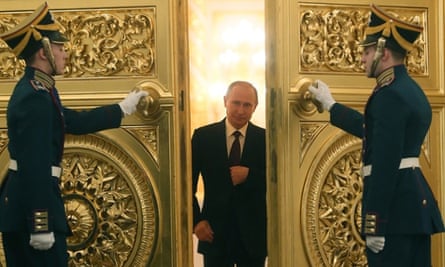
The post-Soviet period has had a Dickensian flavour for Russia – it has been the worst of times, followed by better times. President Boris Yeltsin presided over the Kremlin during the bleakest period, from 1991 to 1999. It was an era marked by economic dysfunction, lawlessness, rampant corruption and a ruinous war in the southern territory of Chechnya.
A turning point took place on the last day of the millennium when Yeltsin unexpectedly resigned, elevating his prime minister, Vladimir Putin, to the presidency. Putin immediately set out to put Russia back together again by unleashing a second war in Chechnya, which ultimately succeeded in halting a secessionist trend – while pushing Islamist militants to turn to terrorism. Terror continues to claim dozens of lives every year.
As president, Putin moved quickly to consolidate his authority over the economy and politics. Rapidly rising energy prices in the mid-2000s enabled him to implement policies that sought to restore Russia’s status as a global power. Although corruption remained prevalent, a mood of prosperity returned – at least to Moscow and St Petersburg. Politicians and entrepreneurs who have opposed Putin have been treated harshly, underscored by the long imprisonment of billionaire Mikhail Khodorkovsky.
In recent years, Putin has tightened his personal grip on power to such a degree that critics say there is little to distinguish him from the tsars and general-secretaries who led Russia in bygone epochs. Analysts suspect that one of his chief goals is the expansion of Russian influence in other formerly Soviet republics under the guise of an economic union. Putin hoped the Moscow-dominated Eurasian Union would function as an alternative EU. Russia’s revival has been punctuated by two triumphs, the defeat of Georgia in a five-day war in 2008, and the annexation of Crimea in March 2014.
Kazakhstan
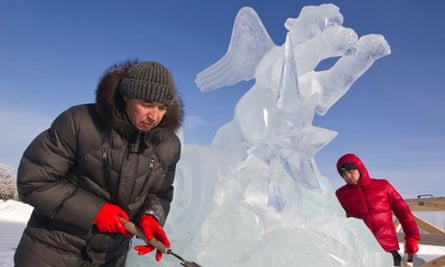
Thanks to energy exports, Kazakhstan is central Asia’s most prosperous state, with annual economic growth averaging about 10% for much of the first decade of the new millennium. Nursultan Nazarbayev has led Kazakhstan as president, since independence in 1991, extending his tenure through a series of constitutional revisions and elections in which he has faced only token opposition.
Nazarbayev permitted a relatively high degree of political activity until the emergence of a reform movement called Democratic Choice of Kazakhstan, backed by several wealthy business people, in late 2001. He launched a crackdown and the movement was formally dissolved in 2005.
Over the next two years, several prominent opposition figures were murdered in mysterious circumstances. In 2007 Nazarbayev’s son-in-law Rakhat Aliyev fled the country after apparently losing a power struggle.
In 2010, parliament granted Nazerbayev special status as “father of the nation”, giving him immunity from prosecution.
All presidential and parliamentary elections held during the independence era have been deemed flawed by independent western monitoring groups.
Over the past decade, Kazakhs have experienced a steady reduction in individual rights. Amendments adopted in 2014, for example, give authorities the right to cut internet and mobile phone access without judicial review.
Kazakhstan, a country with a large Russian minority, has strong relations with Russia, China and the United States. It has the second largest oil reserves among the former Soviet republics after Russia, and its oil exports are expected to soar as its huge Kashagan oil field, in the Caspian Sea, develops.
In recent years, the gap between rich and poor in Kazakhstan has widened, heightening social tensions. These reached boiling point in the western city of Zhanaozen in late 2011 when authorities opened fire on striking workers, leaving at least 14 dead.
Kyrgyzstan
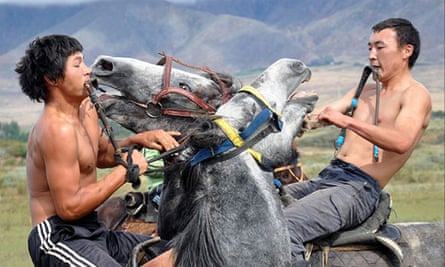
This mountainous central Asian state enjoyed relative stability during the early years of independence. The country’s first post-Soviet president, Askar Akayev, a physicist by training, initially pursued liberal policies and earned it a reputation as the most democratically oriented state in central Asia. But after securing re-election in 1995 Akayev shifted his political course, steadily expanding his presidential powers.
In 2002, in the southern town of Aksy, police fired on people protesting at the arrest of a local politician. Six demonstrators were killed, sparking an opposition movement against Akayev. In 2005 his administration collapsed amid rioting and looting in Bishkek and he was replaced by Kurmanbek Bakiyev, a former prime minister.
Just over five years later, amid mass protests, Bakiyev was also chased from power, accused of abusing his powers to enrich himself and his family. The provisional leadership that replaced him engineered constitutional changes to enhance parliamentary powers at the expense of the executive.
In June 2010, inter-ethnic rioting involving Kyrgyz and Uzbeks erupted in southern provinces, leaving hundreds dead.
Kyrgyzstan has sought to balance western and Russian interests. In the aftermath of 9/11, Kyrgyzstan agreed to host a US air base at Manas, outside Bishkek. The facility, scheduled to close in July 2014, served as a logistics hub for US and Nato military operations in Afghanistan. Russia has an air base at nearby Kant. Economically, Kyrgyzstan is heavily dependent on Russia, although China has made inroads over the past two decades. High unemployment and widespread poverty mean Kyrgyzstan is a major source of migrant labourers, many of whom find work in Russia.
Uzbekistan
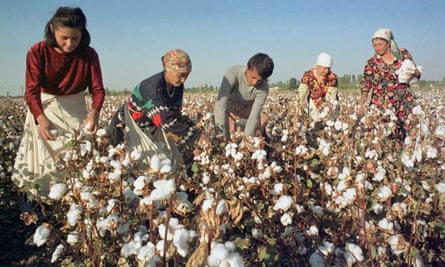
Uzbekistan is central Asia’s most populous state and strives to assert itself as a regional power. These ambitions often generate friction with its neighbours, especially Tajikistan.
Islam Karimov, a Communist party boss during the Soviet era, has led Uzbekistan since independence in 1991.
At first Uzbekistan had a competitive political system but by 1995 Karimov had eliminated all opposition. Western observers have never deemed any Uzbek presidential or parliamentary election in the post-Soviet era to be free and fair.
Radical Islam gained a following amid the economic upheaval of the 1990s, especially in the densely populated Ferghana Valley region. Islamist militants carried out bombings in 1999 in Tashkent. In response, Karimov launched a far-reaching crackdown on all forms of religious expression not expressly sanctioned by the state.
The crackdown, in turn, fuelled the growth of an insurgency by the Islamic Movement of Uzbekistan (IMU). After the September 11 terror attacks, IMU militants fought with the Taliban in Afghanistan but were wiped out by US forces by 2002. Subsequently, Karimov tightened controls over political and economic life.
After 9/11 Uzbekistan became a close strategic partner of the US, providing military facilities and transit routes to support US and Nato operations in Afghanistan. The relationship made it uncomfortable for the US and EU to speak out about human rights abuses in Uzbekistan. In May 2005 the government massacred protesters in the Ferghana Valley city of Andijan, prompting a break in ties with the west.
Relations remain strained, even as Uzbekistan serves as a transit hub for the Afghanistan military withdrawal. Meanwhile, Karimov has sought to keep Russia at arm’s length. Economically, tight state controls have fostered stagnation and popular resentment while hindering foreign investment. The country’s primary exports are natural gas and cotton.
Turkmenistan
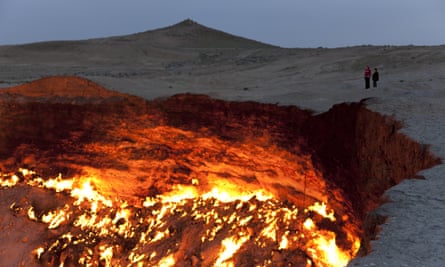
Turkmenistan is among the most corrupt and repressive countries on earth, according to watchdogs. It also possesses the fourth-largest proven reserves of natural gas in the world. After independence in 1991, President Saparmurat Niyazov built a cult of personality, adopting the title Turkmenbashi – the father of all Turkmen. He renamed months of the year in honour of himself and his mother, and wrote a lifestyle guide, the Ruhnama, which became required reading for high school and university students. In 1999 the compliant parliament voted for Niyazov to become president for life, and in 2002, he used an alleged assassination attempt to legitimise a far-reaching crackdown on political opponents.
Throughout the early 2000s Niyazov changed policies on education, public health and other sectors to cut off Turkmen people from outside influences. He died suddenly in 2006 in unclear circumstances.
Gurbanguly Berdymukhamedov, a former health minister and a trained dentist, emerged as Niyazov’s successor, running unopposed in a presidential election in early 2007. While he has dismantled Niyazov’s personality cult, he has maintained an authoritarian leadership style and has adopted the honorific title of arkadag – protector. No form of political dissent is tolerated.
Economically, gas exports enable the government to maintain its tight grip on power. Until 2009, Turkmenistan’s chief gas export partner was Russia. A pricing dispute prompted the country to reorient its exports towards China, aided by the opening of a pipeline connecting the two countries in 2009.
By 2013, Turkmenistan was China’s largest foreign supplier of natural gas. Turkmenistan has expressed interest in exporting to the EU via a trans-Caspian pipeline and to India and Pakistan across Afghanistan, but the plans are yet to get off the drawing board.
Armenia
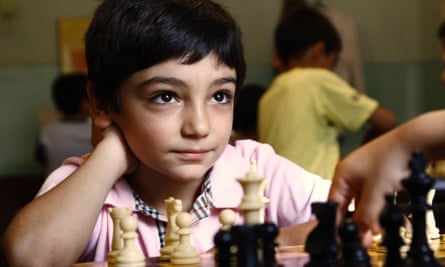
Armenia is the poorest country in the Caucasus, with roughly a third of the population living at or below the poverty line. The country’s post-Soviet history has been defined by two diplomatic disputes with its neighbours: a quest to get Turkey to agree that the massacre of hundreds of thousands of Armenians during the late Ottoman era constituted genocide; and the search for a political settlement to a conflict with Azerbaijan over the Nagorno-Karabakh territory. A Karabakh ceasefire agreement was reached in 1994 but the two countries have continued to haggle over peace terms.
Domestically, Armenia has experienced bouts of political turbulence. In 1999, assassins killed the prime minister and other top officials in the parliamentary chamber. Protests following a contentious presidential election in 2008 culminated in clashes that left at least 10 dead.
The 2013 presidential vote, which resulted in the re-election of Serzh Sargsyan, also sparked mass protests.
Armenia is a close ally of Russia and hosts a Russian military base near the provincial city of Gyumri. In 2009, Armenia explored a rapprochement with Turkey, but the initiative failed to end decades of mutual rancour. With the domestic economy in the doldrums, hundreds of thousands of Armenians are abroad as migrant labourers, and their remittances are vital to the Armenian economy.
Tajikistan
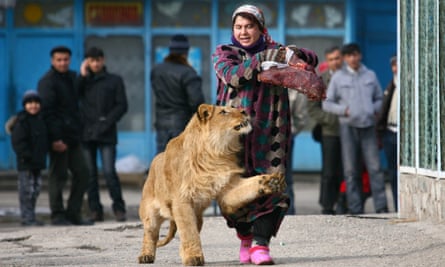
Tajikistan is the poorest of all formerly Soviet republics, according to the UNDP’s human development index. Shortly after the Soviet collapse in 1991, it descended into a civil war that pitted government forces dominated by the former Communist party elite against a broad coalition that included Islamists and pro-western elements.
Amid the upheaval in late 1992, the first elected president, Rahmon Nabiyev, was forced to resign. He was replaced by Emomali Rahmon, who has held the presidency since then. A peace deal in 1997 assured Islamists a 30% quota of government posts, but over time Rahmon succeeded in pushing them out and establishing firm control over the government. European monitors have not deemed any Tajik presidential or parliamentary election to be free and fair.
On Afghanistan’s northern border, Tajikistan has served as an important staging area and supply route for US and Nato operations against the Taliban. At the same time, Tajikistan is heavily dependent on Russia for economic and strategic aid and Moscow maintains an army division on Tajik soil.
The domestic economy is characterised by widespread corruption, mismanagement and unemployment, and many areas of the country endure blackouts on a regular basis. More than a million Tajiks, or about an eighth of the population, are believed to be in Russia as guest workers. Remittances from these migrant labourers are estimated to account for 52% of GDP, according to World Bank data.
The tenuous nature of the economy means that Rahmon’s hold on power is far from secure, even though he currently faces no significant political opposition.
• Now test your knowledge by taking our quiz
The regional map featured above was amended on 12 June 2014
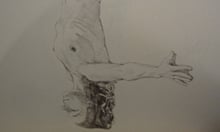

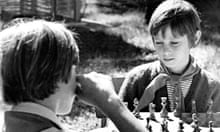
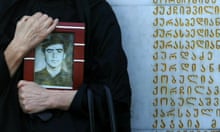
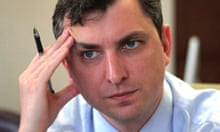
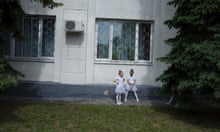
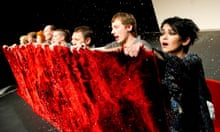
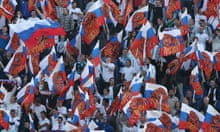


Comments (…)
Sign in or create your Guardian account to join the discussion